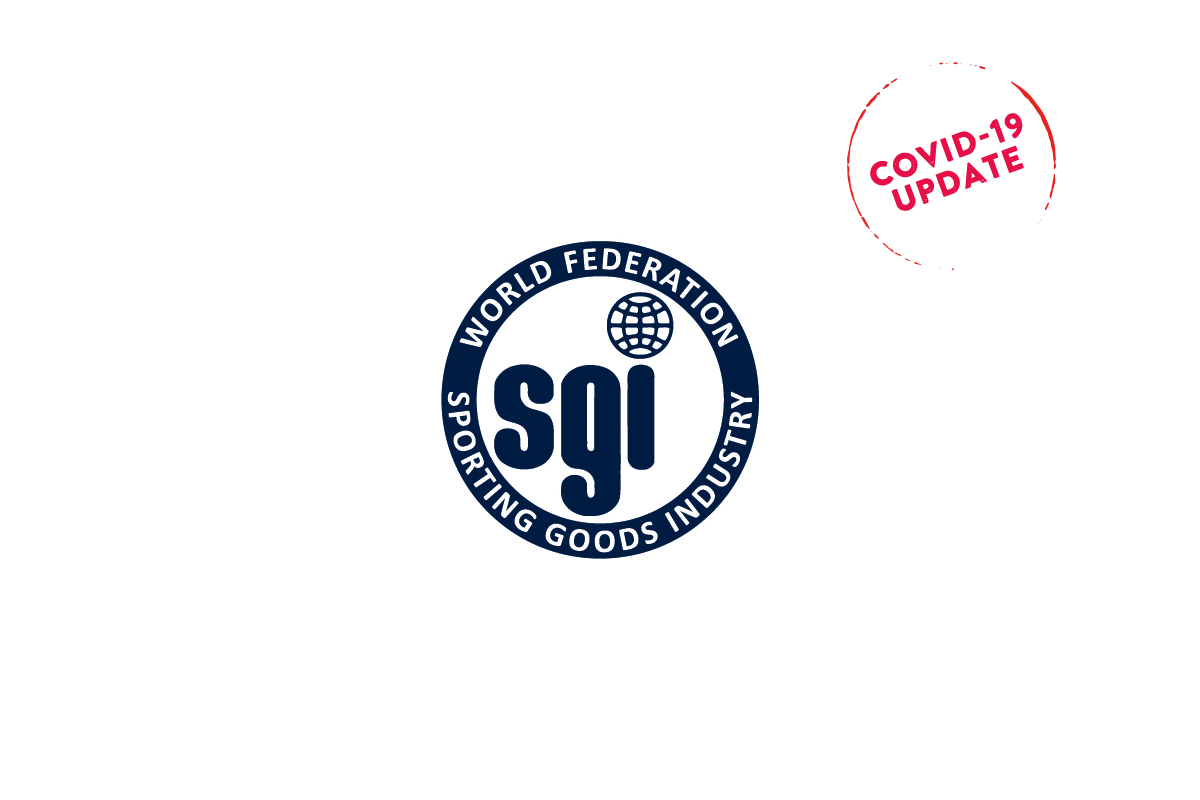The World Federation of the Sporting Goods Industry (WFSGI) has published the latest edition of its WFSGI COVID-19 Impact Survey.
EXECUTIVE SUMMARY OF THE WFSGI COVID-19 IMPACT SURVEY OCTOBER EDITION
Manufacturing Companies Responses:
DEMAND: Less than one third of survey participants didn’t see orders decrease. The situation remains challenging for the European and Northern American markets from where 50% see less orders being made. However, it seems that for most other regions the situation has not further deteriorated.
LOGISTICS: Of the 36% that are facing issues getting enough material for their production, the most given reason was that finished goods were not shipped in time and delayed.
SUPPLY: Still 64% of sporting goods industry representatives see their supply chains being disrupted. They see this issue mainly for the regions of South Asia and Far East.
LABOR: Over 60% are no longer confronted with labor shortage which is the most promising result since the initiation of the survey.
LEGAL: There is very low difference between sporting goods members being impacted by legal requirements or not, this month again some 4% more see their business activity being restricted by regulatory measures.
FINANCE: The situation remains stable with fifty-fifty dealing with cash flow issues or not.
REGRESSION: The numbers of survey participants seeing their business being impacted by COVID-19 is still high with 70%, that’s only 5% less than last month.
RECOVERY: Since the summer months, it’s the first time that some respondents expect business recovery of 70% and above. However, this does not counter the fact that most companies assume that they will need over a year to recover.
MEASURES: A large majority of over 95% of respondents have a plan to sustain operations with a special focus on consolidating production capacities and lean production
Retail and Brand Companies Responses:
IMPACT MITIGATION: Increasing online sales remains unchanged the most chosen option by close to 90% to mitigate the impact of the pandemic. All other option have received from less than 35% of participants approval.
REPERCUSSION: Since summer, consolidating the supply chain and keeping the same supply chain but attributing less order to each of the suppliers, are the two answers mostly provided.
PRIORITY: The industry attributes the same importance to Employees Health as it does to keeping cash positions.
EXPECTATIONS: With over 80% of respondents expecting flexibility of suppliers, this option remains throughout the year the most important answer provided.
TRANSFORMATION: The trend shows clearly that none of the participating industry players plan to keep their supply chain unchanged. Lean and adaptive production are the most prominent considerations.
SOURCING PRIORITIES: The trend continues upwards for respondents who are not reframing their sourcing priorities at all, as over 40% of respondents indicated this month.
MARKET TRENDS: The strong trend continues as environmentally friendly products are the crucial trend for over 80% of participants.
PREVAILING SPORTS: Running is for the first time since May as important as Outdoor with close to 80% of respondents predicting these two as the prevailing sports after the pandemic.
The full survey results, courtesy of WFSGI, can be found here:



